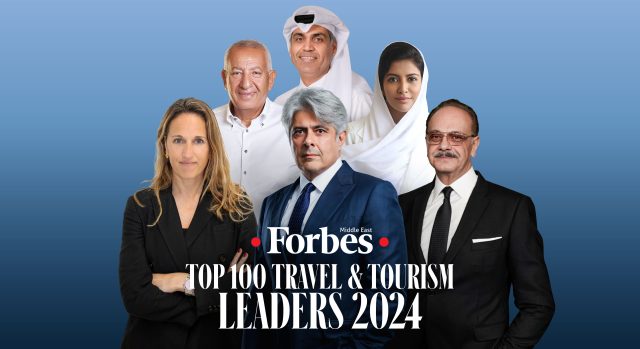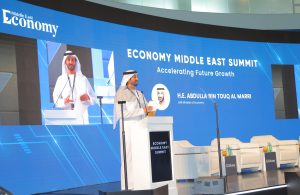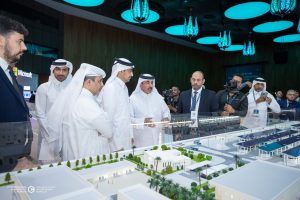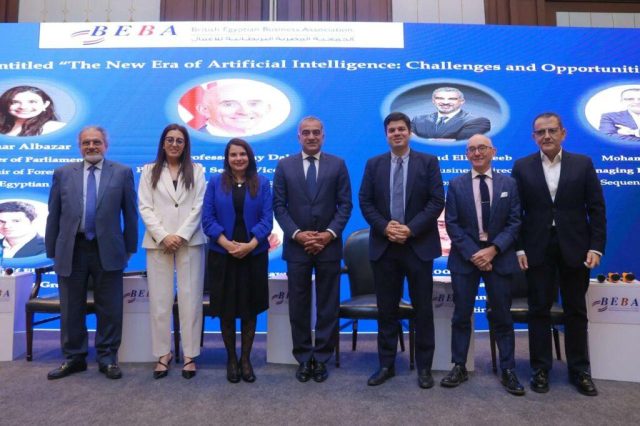Adesina delivers keynote address as Islamic Development Bank marks its 50th anniversary
Climate and health initiatives are of paramount importance
Riyadh, 29 April 2024—African Development Bank Group President Dr. Akinwumi A. Adesina has emphasized the critical need for significantly increased financing to meet the Sustainable Development Goals (SDGs).
Speaking at the Islamic Development Bank’s 50th anniversary celebrations in Riyadh, he highlighted a growing annual financial shortfall of $4 trillion, a gap that threatens to derail efforts to achieve the SDGs by 2030.
Adesina addressed a distinguished audience including high-level officials, financial leaders and private sector representatives gathered to mark the occasion. The session focused on assessing the financial strategies essential for advancing global development amidst a landscape marked by economic instability and escalating environmental challenges.
African Development Bank President said the current annual gap of $4 trillion, up from $2.5 trillion in 2015, has been propelled by recent global economic pressures and the lingering impacts of the Covid-19 pandemic. He detailed the critical role of multilateral development banks in addressing these needs through increased collaboration and innovative financial solutions.
Strategic Response to Pressing Global Issues
Adesina also spotlighted the African Development Bank’s strategic High 5 program as a cornerstone for progress, as underscored by an independent analysis by the United Nations Development Program. The High 5s—namely; Light Up and Power Africa; Feed Africa, Industrialize Africa, Integrate Africa, and Improve the Quality of Life for the People of Africa—are not just ambitious goals but a strategic blueprint for the continent. Achieving these High 5s, he pointed out, would mean accomplishing nearly 90% of the Sustainable Development Goals for Africa.
In this regard, Adesina highlighted five core areas where immediate action and innovative funding are crucial: Climate change, food security, energy access, health security, and mobilizing more resources for SDGs.
Climate Change: The African Development Bank president Adesina described climate change as the most significant challenge to achieving the SDGs, detailing the devastation it brings to economies through droughts, floods, and cyclones. Africa is the worst affected region in the world, yet it receives the least in terms of climate financing. “Africa will need $277 billion per year to address climate change, yet it receives only $30 billion annually.” The African Development Bank, Adesina said, “has set a target to raise $25 billion for climate adaptation by 2025.”
Food Security: He also addressed the issue of volatile food prices exacerbated by geopolitical conflicts, supply disruptions and trade restrictive practices of some major food exporters. Adesina reiterated the African Development Bank’s commitment of $25 billion to support Africa become self-sufficient in food by 2030. He shared with the audience key successes in transforming agricultural productivity and food security across Africa. He mentioned the Technologies for African Agricultural Transformation (TAAT) program, which has already delivered climate-resilient crop varieties of wheat, maize, and rice to 13 million farmers. Ethiopia, through the introduction of heat-tolerant wheat varieties provided by the TAAT program, has achieved self-sufficiency in wheat production within four years and has become a net exporter of wheat. He thanked the Islamic Development Bank for committing $7 billion during the Feed Africa summit held early last year by the African Development Bank, the African Union and the government of Senegal. The summit brought together 34 heads of state and government who developed country-led food and agricultural delivery compacts to achieve food security by 2030.
Energy Access: Highlighting the disparity in electricity access, where over 675 million people worldwide lack electricity with 80% of them in sub-Saharan Africa, he underscored the Bank’s efforts through the Desert-to-Power initiative. This project is developing 10,000 megawatts of solar power across the Sahel and will provide electricity access for 250 million people.
Health Security: With a significant gap in health services in Africa, Adesina advocated for increased investment in health infrastructure and local pharmaceutical capacities to prepare for future pandemics. He pointed to the current annual investment of $4.5 billion in health infrastructure as significantly insufficient when measured against the actual need of $25 billion. He emphasized the need for self-reliance in healthcare, particularly in preparation for future pandemics, citing the hard lessons that Africa learned from the Covid-19 pandemic. To counteract this, the African Development Bank Group has committed $3 billion towards quality health infrastructure and a further $3 billion for developing the pharmaceutical industry in Africa. This includes a substantial investment to facilitate the production of medicines and vaccines directly on the continent, bolstered by the creation of the Africa Pharmaceutical Technology Foundation, which aims to broaden access to vital technologies and intellectual property rights.
Mobilizing Resources: Addressing the need for innovative financing, the African Development Bank president spoke of groundbreaking steps taken by the African Development Bank, such as the issuance of $750 million in landmark hybrid capital. This financial instrument, a first for multilateral development banks, is intended to serve as equity, enhancing the Bank’s lending capacity. He also said that, in a joint initiative with the Inter-American Development Bank, the African Development Bank is pioneering the use of Special Drawing Rights (SDRs) as hybrid capital, subject to approval by the IMF’s board. This move could potentially quadruple the Bank’s leverage capacity, significantly amplifying the financial resources available for SDGs.
Additionally, Adesina underscored the pivotal role of the private sector in scaling up SDG investments from billions to trillions. He advocated for harnessing the power of the $128 trillion in global institutional investor assets through more extensive use of guarantees, development of investable projects, and addressing foreign exchange and currency risks.
In his introductory remarks, the president of the Islamic Development Bank Dr Mohammed Al Jasser said crises such as climate change, the pandemic, and ongoing conflicts continue to threaten the hard-won gains achieved over decades.
In addition, Al Jasser said “the stark reality we face is that the global financial system has not kept pace with the urgency required to realize the SDGs. We must collectively work towards a global financial system that fosters a more inclusive, equitable, and sustainable future.”
“It is within this context that Islamic finance adds value – prioritizing not just financial returns, but the holistic well-being of individuals and our planet. Its principles of shared prosperity, risk-sharing, and ethical investment present a clear path toward bridging the SDGs financing gap,” he said.
Engaging Global Leaders for Collective Action
In his call to action to achieve the ambitious goals set forth by the 2030 Agenda for Sustainable Development, Adesina said, “the call by the UN Secretary General for a $500 billion per year SDG stimulus package should be fully supported.”
“The developed countries need to increase support by devoting at least 0.70% of their gross national income to official development assistance,” Adesina added, among other critical actions.
His message was clear: “Let’s give hope to the world by delivering on these goals for a sustainable and equitable future!”.
Later on Sunday, Adesina held a series of bilateral meetings with key government officials and development institutions in Riyadh.
The Bank Group president together with the CEO of Saudi Exim Bank Eng. Saad Al-Khalb signed a memorandum of understanding to strengthen bilateral trade and cooperation between the Kingdom and the African continent. Saudi Arabia’s Governor to the African Development Bank, Deputy Chair of the International Monetary and Financial Committee Dr Ryadh M. Alkhareif witnessed the signing of the MoU.
The Saudi Fund for Development and the African Development Bank Group also signed a memorandum of understanding to promote sustainable international development by financing projects and programs in beneficiary countries in Africa.
The agreement was signed at the Fund’s headquarters by the CEO of the Saudi Fund for Development, Sultan bin Abdulrahman Al-Marshad and Adesina.
The signing ceremony was attended by the Governor of the Kingdom of Saudi Arabia to the African Development Bank Group, Dr. Ryadh bin Mohammed Alkhareif, and SFD’s Executive Vice President Eng. Faisal bin Mohammad Al-Qahtani.
Through the MoU, the two sides will work to exchange experiences and knowledge, promote best practices in co-financing, contribute to achieving sustainable development goals and maximize development impact, among others.
Dr. Adesina’s speech
Media contact: Communication and External Relations Department, media@afdb.org


















